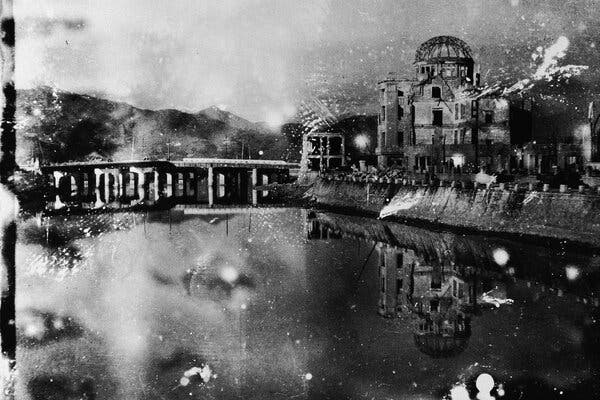In the annals of human history, the atom bombings of Hiroshima and Nagasaki stand as a profound testament to the capabilities and consequences of mankind’s technological advancements. These two tragic events, occurring in August 1945, resulted in devastating human and environmental tolls that invite scrutiny not only from a historical perspective but also from a moral and ethical viewpoint, especially within the context of Christian teachings. What does such cataclysmic destruction reveal about our nature as stewards of God’s creation? This inquiry underscores the necessity to reflect on the profound implications of our actions and choices.
The immediate human toll of the bombings was catastrophic. Approximately 140,000 individuals succumbed to the effects of the atomic bomb in Hiroshima by the end of 1945, while around 74,000 were lost in Nagasaki. These figures represent not merely numbers, but lives extinguished—families torn apart, communities obliterated. In considering the scriptural emphasis on the sanctity of life, one can ponder the ethical ramifications of such overwhelming violence. The destruction of Hiroshima and Nagasaki challenges Christ’s call to love one’s neighbor. How do we reconcile this act with the core Christian tenet that emphasizes compassion and mercy?
The suffering did not conclude with the initial blast. Survivors, known as hibakusha, faced long-term health repercussions, including increased cancer rates and psychological trauma. The Christian doctrine emphasizes the importance of community and support in times of suffering. Here, a poignant question rises: how should we, as a global community, respond to those who endure the lingering effects of such devastation? The church is often called upon to embody Christ’s love through tangible acts of support, offering solace, healing, and hope to the afflicted.
Moreover, the environmental toll was equally daunting. The bombings decimated entire cities and obliterated ecosystems. The soil was irradiated; water supplies were contaminated; flora and fauna faced extinction. In a theological sense, this poses a significant question regarding humanity’s role as caretakers of God’s creation. Genesis 2:15 states, “The Lord God took the man and put him in the Garden of Eden to work it and take care of it.” Have we, in our pursuit of power and control, failed to honor this divine mandate? Reflecting on the bombings leads us to ponder whether humanity is in a constant battle between our proclamations of stewardship and our actions that often betray those very proclamations.
Yet in the face of such despair, there arises a challenge for modern Christians. How can we transform the sorrow stemming from Hiroshima and Nagasaki into a clarion call for peace and reconciliation? The Christian message of forgiveness and healing invites us to engage with historical trauma actively, seeking ways to foster understanding and prevent future atrocities. One potential avenue is through education; teaching about the horrors of nuclear conflict should be a priority for all cultures as we strive to instill a collective commitment to peace.
Furthermore, the reassessment of nuclear weapons in contemporary society emerges as a pressing need. The bombings serve as warnings about the consequences of such weaponry. How might the church advocate for disarmament and nuclear non-proliferation in a world plagued by fear and suspicion? The teachings of Christ urge us not only to pursue peace but to become agents of transformation in our communities and indeed, around the globe.
Another dimension to consider lies in the moral dilemma surrounding deterrence. Does maintaining a stockpile of nuclear weapons serve as a safeguard or a curse? Some proponents assert that the mere existence of these weapons can deter aggressors. However, this raises an ethical quandary. Is it justifiable to possess instruments of potential mass destruction, even if the intent is self-defense? This paradox leads to an essential realization—the call to faith requires believers to grapple with challenging questions rather than shy away from them.
In considering the prophetic tradition of the Old Testament, we see instances where the prophets spoke boldly against injustice, violence, and suffering. This tradition commands modern Christians to raise their voices against the proliferation of nuclear weapons. Engaging lamentation for the past atrocities while advocating for a more hopeful future resonates with Jeremiah’s tears for Jerusalem, urging contemporary followers of Christ to intercede for peace and healing among nations. As we reflect on Hiroshima and Nagasaki, let us allow the sorrow of history not to paralyze us but rather galvanize us toward action.
Ultimately, the bombings of Hiroshima and Nagasaki serve as a historical cautionary tale that reverberates through the ages, challenging believers to confront hard truths about human nature and divine expectations. From a Christian perspective, the human and environmental toll of these bombings implores us to look inward, to assess our actions, and to advocate for a world where love triumphs over power, and where the stewardship of creation reflects the peace of Christ. As we navigate these profound moral landscapes shaped by nuclear history, may we endeavor to build a future that honors the sanctity of every life and the integrity of our planet.



